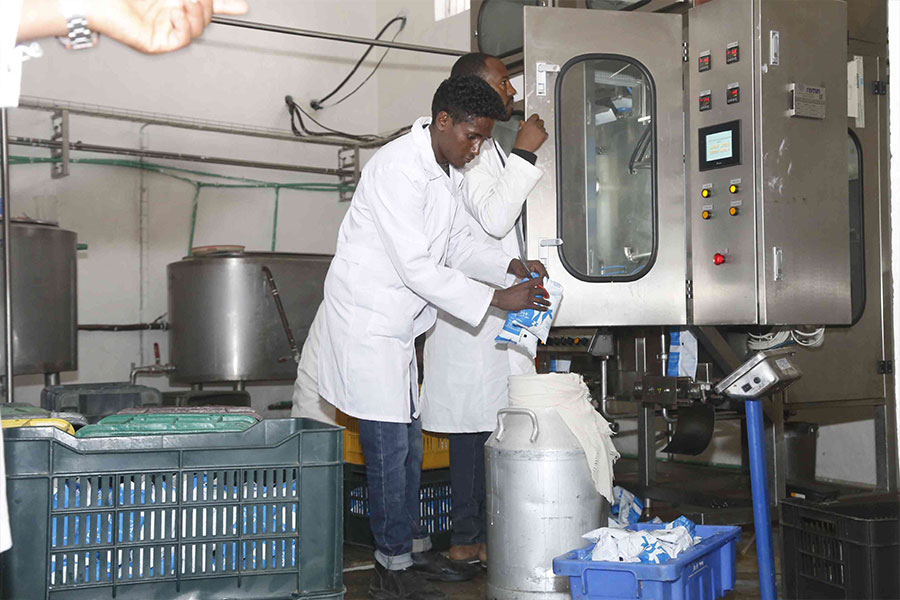
Delicate Number | May 24,2025
Sep 3 , 2022
By Bradford DeLong
On September 6, Basic Books is publishing "Slouching Towards Utopia," my economic history of the “long twentieth century” from 1870 to 2010. It is past time, I argue, that we shift our understanding of where the hinge of global economic history lies.
Some might put it in 1076, when the European Investiture Controversy cemented the idea that law should constrain even the most powerful, rather than being merely a tool at their disposal. Another big year is 1450, when the arrival of the Gutenberg moveable-type printing press and the Renaissance set the stage for the Enlightenment. And then, of course, there is 1770, when the Industrial Revolution really got into swing.
There can be no disputing the importance of what these dates represent. But I chose 1870 because it matters even more. It is when the industrial research lab, the modern corporation, and full globalisation fell into place. These were the institutions that would supercharge technological progress to the point of doubling the size of the global economy every generation – which is generally what it did from 1870 to 2010.
That unprecedented pace of technological advance gave humanity the power finally to banish the devil of Malthus. No longer would population growth cancel out productivity gains to keep the world poor. Innovations in technology, method, and organisation made it possible to expand the economic pie so that everyone could have enough. This meant that governance would no longer function primarily as a resource-extraction machine by which the elite could grab “enough” of the insufficiently sized pie for themselves. Instead, government and politics could finally be directed toward making a truly human world.
The post-1870 technological trajectory rapidly surpassed anything that humanity had previously imagined would be necessary for achieving utopia. With the problem of baking a sufficiently large economic pie having been solved, it seemed that the hard part was over. All humanity had to do next was to figure out how to slice and then taste the pie – that is, how to convert our technological prowess into happy, healthy, safe, and secure lives for all. These problems would be solved even faster, right?
In fact, the problems of slicing and tasting the rapidly growing economic pie have consistently flummoxed us. To understand why we have collectively been unable to get it right, I would point to four thinkers.
The first is the Austrian-born economist Joseph Schumpeter, who explained how modern technology generates immense wealth through a process of “creative destruction.” Technological and economic progress requires that old industries, occupations, and societal patterns be regularly destroyed to make way for new creations. This process can undoubtedly be painful. But it is also why there has been more technological change since 1870 than between 6000 BC and 1869.
The second thinker is Friedrich Engels, who worked out the Marxist base-superstructure model of political economy (this is, of course, Marx’s framework, but I believe it owes more to his collaborator).
“Superstructure” describes all of society, with its personal networks, sociological patterns, and political, cultural, and – crucially – economic institutions. As important as these things are, they all rest on and must conform to the underlying technological “base” of production. At every moment since 1870, whatever sociological software a society was running would inevitably become obsolete and crash within 50 years, owing to changes in the underlying hardware, which in turn were driven by Schumpeterian creative destruction.
The third thinker is another Austrian-born economist, Friedrich von Hayek. His magnificent insight was that the market economy is an unrivalled mechanism for crowdsourcing innovation and mobilising human brainpower to make the world richer (provided that property rights are enforced).
But Hayek warned that these benefits come at a terrible price: the market cannot be expected to provide any form of social justice. He believed in his bones that any attempt to manage or tweak the market with such goals in mind not only would fail but also would undermine the market’s ability to do what it does best. His doctrine thus amounted to, “The market giveth, the market taketh away: blessed be the name of the market.” Anything else would put us on “the road to serfdom.”
Finally, the Hungarian economic anthropologist Karl Polanyi saw that Hayek’s vision of a market-bestowed utopia was unsustainable by dint of being inhuman. People want a say in how their society’s resources are used. They will demand that their – and others’ – incomes reach some minimum dignified level, and they will expect a certain degree of stability. People tend to resist the idea that their pattern of life can be singlehandedly destroyed by some rootless profit-maximising cosmopolite half a world away. For better or worse, that is how people are. If property rights really are the only rights that matter, politics and society eventually will unravel.
All four thinkers enable us to understand why we have been unable to use our technological prowess to construct an equitable and happy world. But diagnosis is of course only half the battle (and probably less). The task of future generations is to figure out how to become as good at slicing and tasting the economic pie as previous generations were at making it bigger.
PUBLISHED ON
Sep 03,2022 [ VOL
23 , NO
1166]


Delicate Number | May 24,2025

Sunday with Eden | Jun 21,2025

Agenda | Jun 07,2022

My Opinion | Aug 03,2024

Fortune News | Dec 25,2022

Advertorials | Jun 03,2025

Radar | Oct 27,2024

Radar | Oct 19,2024

Viewpoints | May 11,2024

Viewpoints | Jun 14,2025

My Opinion | 131819 Views | Aug 14,2021

My Opinion | 128203 Views | Aug 21,2021

My Opinion | 126147 Views | Sep 10,2021

My Opinion | 123767 Views | Aug 07,2021

Dec 22 , 2024 . By TIZITA SHEWAFERAW
Charged with transforming colossal state-owned enterprises into modern and competitiv...

Aug 18 , 2024 . By AKSAH ITALO
Although predictable Yonas Zerihun's job in the ride-hailing service is not immune to...

Jul 28 , 2024 . By TIZITA SHEWAFERAW
Unhabitual, perhaps too many, Samuel Gebreyohannes, 38, used to occasionally enjoy a couple of beers at breakfast. However, he recently swit...

Jul 13 , 2024 . By AKSAH ITALO
Investors who rely on tractors, trucks, and field vehicles for commuting, transporting commodities, and f...

Jul 5 , 2025
Six years ago, Ethiopia was the darling of international liberal commentators. A year...

Jun 28 , 2025
Meseret Damtie, the assertive auditor general, has never been shy about naming names...

Jun 21 , 2025
A well-worn adage says, “Budget is not destiny, but it is direction.” Examining t...

Jun 14 , 2025
Yet again, the Horn of Africa is bracing for trouble. A region already frayed by wars...

Jul 6 , 2025 . By BEZAWIT HULUAGER
The federal legislature gave Prime Minister Abiy Ahmed (PhD) what he wanted: a 1.9 tr...

Jul 6 , 2025 . By YITBAREK GETACHEW
In a city rising skyward at breakneck speed, a reckoning has arrived. Authorities in...

Jul 6 , 2025 . By NAHOM AYELE
A landmark directive from the Ministry of Finance signals a paradigm shift in the cou...

Jul 6 , 2025 . By NAHOM AYELE
Awash Bank has announced plans to establish a dedicated investment banking subsidiary...